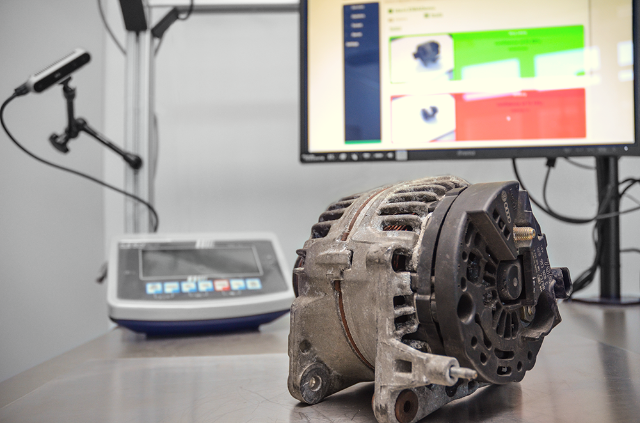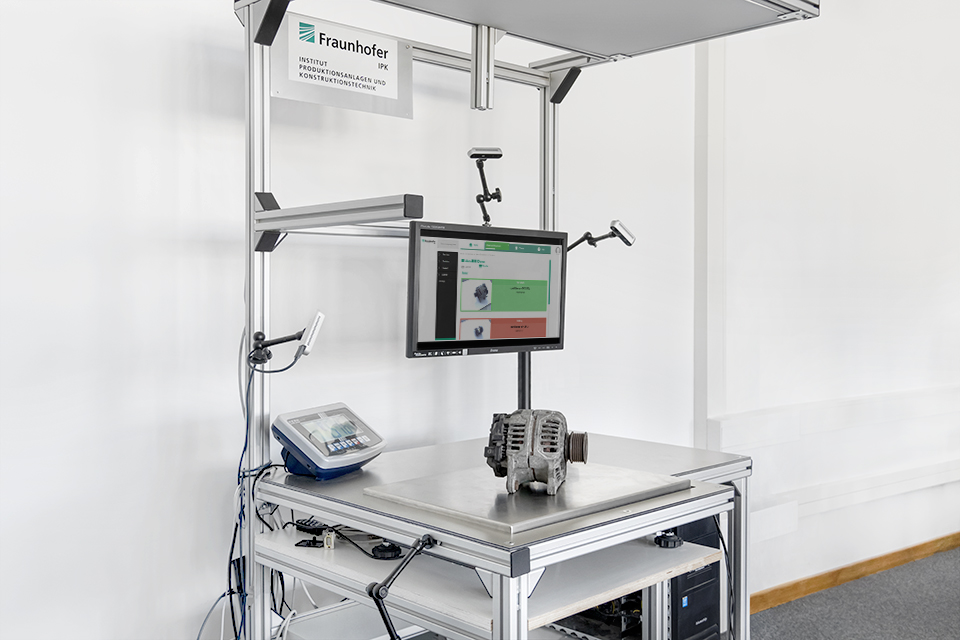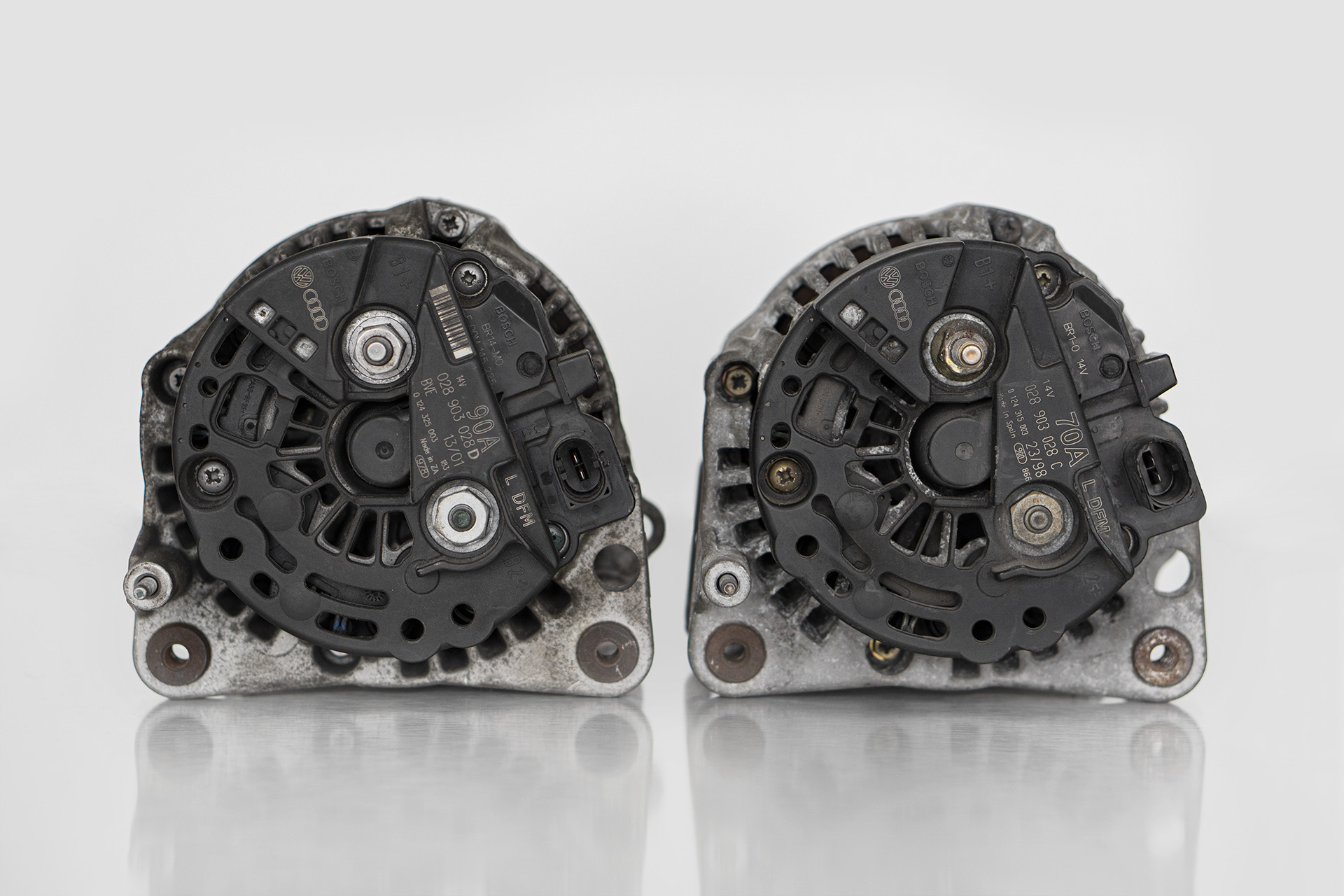No two used objects look alike. Old parts are always unique, making them difficult to identify. Rust, dirt or missing parts are just a few examples of the many challenges.
In Germany, up to seven percent of all used parts are discarded each year because they cannot be identified. Combined with a high variance of products, clear identification is a huge challenge.
How do you identify a component that is past its prime? Since there is high variance and sometimes contamination and deformation of the products, evaluation is often difficult and has to be handled individually as well as manually.
At Fraunhofer IPK, we have been working on image-based, marker-less identification of all kinds of objects for a number of years. The identification of old parts plays a decisive role in many projects and is a very exciting field of research. In doing so, we always consider the holistic problem: from data recording to the final application.
We have developed an AI-based technology that reliably identifies objects, combining the following advantages: An intelligent combination of different image capture perspectives with simultaneous use of 2D and 3D data of the old parts and thereby independent of condition and markers.
Images from different perspectives are merged and information is acquired in relation to the perspective. The AI technology can thus access extensive information about the object for identification. In addition, in-depth information is also processed. These provide another dimension of features that are texture-independent and can be assigned to an object.
The AI learns independently with each usage. It can automatically adapt to new objects and changing environmental conditions, and continuously improves the algorithm. The extension of the information base with depth data, together with different angles and perspectives, results in a unique approach to the identification of used parts. Processes are digitally supported and documented. Studies within the EIBA project show that image-based identification recognizes around 98.99 percent of all objects.
The combination of human know-how and AI-based recognition leads to a new, innovative and holistic approach to sorting for remanufacturing – a pioneering four-eye principle of humans and an AI assistance system.

 Fraunhofer Institute for Production Systems and Design Technology
Fraunhofer Institute for Production Systems and Design Technology

